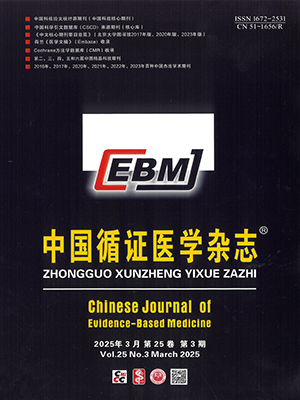| 1. |
中华医学会肝病学分会脂肪肝和酒精性肝病学组, 中国医师协会脂肪性肝病专家委员会. 非酒精性脂肪性肝病防治指南(2018年更新版). 临床肝胆病杂志, 2018, 34(5): 947-957.
|
| 2. |
邵幼林, 范建高. 非酒精性脂肪性肝病的流行现状与危害. 中华肝脏病杂志, 2019, 27(1): 10-13.
|
| 3. |
Bebawi E, Takla M, Leonard J. Nonalcoholic fatty liver disease. CMAJ, 2023, 195(26): E909.
|
| 4. |
Witkowski M, Moreno SI, Fernandes J, et al. The economic burden of non-alcoholic steatohepatitis: a systematic review. Pharmacoeconomics, 2022, 40(8): 751-776.
|
| 5. |
Yuzbashian E, Fernando DN, Pakseresht M, et al. Dairy product consumption and risk of non-alcoholic fatty liver disease: a systematic review and meta-analysis of observational studies. Nutr Metab Cardiovasc Dis, 2023, 33(8): 1461-1471.
|
| 6. |
Dai W, Liu H, Zhang T, et al. Dairy product consumption was associated with a lower likelihood of non-alcoholic fatty liver disease: a systematic review and meta-analysis. Front Nutr, 2023, 10: 1119118.
|
| 7. |
Chen YP, Lu FB, Hu YB, et al. A systematic review and a dose-response meta-analysis of coffee dose and nonalcoholic fatty liver disease. Clin Nutr, 2019, 38(6): 2552-2557.
|
| 8. |
Hayat U, Siddiqui AA, Okut H, et al. The effect of coffee consumption on the non-alcoholic fatty liver disease and liver fibrosis: a meta-analysis of 11 epidemiological studies. Ann Hepatol, 2021, 20: 100254.
|
| 9. |
Zhao SS, Lyu H, Solomon DH, et al. Improving rheumatoid arthritis comparative effectiveness research through causal inference principles: systematic review using a target trial emulation framework. Ann Rheum Dis, 2020, 79(7): 883-890.
|
| 10. |
Wang SV, Schneeweiss S. Assessing and interpreting real-world evidence studies: introductory points for new reviewers. Clin Pharmacol Ther, 2022, 111(1): 145-149.
|
| 11. |
张学成, 刘岩, 张晶晶, 等. 急性心力衰竭患者30天再住院率: 基于真实世界研究与随机对照试验比较的Meta分析. 中国循证医学杂志, 2021, 21(10): 1203-1210.
|
| 12. |
Pagoni P, Dimou NL, Murphy N, et al. Using Mendelian randomisation to assess causality in observational studies. Evid Based Ment Health, 2019, 22(2): 67-71.
|
| 13. |
Swanson SA, Tiemeier H, Ikram MA, et al. Nature as a Trialist. Deconstructing the analogy between Mendelian randomization and randomized trials. Epidemiology, 2017, 28(5): 653-659.
|
| 14. |
CSCO生物统计学专家委员会RWS方法学组. 孟德尔随机化模型及其规范化应用的统计学共识. 中国卫生统计, 2021, 38(3): 471-475, 480.
|
| 15. |
王洪波, 王秀娟, 郭新红, 等. 抵抗素与多发性骨髓瘤: 两样本孟德尔随机化研究. 中国循证医学杂志, 2023, 23(9): 1005-1010.
|
| 16. |
Larsson SC, Mason AM, Kar S, et al. Genetically proxied milk consumption and risk of colorectal, bladder, breast, and prostate cancer: a two-sample Mendelian randomization study. BMC Med, 2020, 18(1): 370.
|
| 17. |
李文超, 李洪凯, 刘新辉, 等. 基于孟德尔随机化探索臀围与2型糖尿病的因果关系. 中华疾病控制杂志, 2020, 24(1): 9-13,19.
|
| 18. |
Zhang Z, Wang M, Yuan S, et al. Alcohol, coffee, and milk intake in relation to epilepsy risk. Nutrients, 2022, 14(6): 1153.
|
| 19. |
和思敏, 张雨, 彭刘庆, 等. 倾向性评分与孟德尔随机化国内研究现状. 中华疾病控制杂志, 2022, 26(3): 325-330.
|
| 20. |
Weith M, Beyer A. The next step in Mendelian randomization. Elife, 2023, 12: e86416.
|
| 21. |
Fadista J, Manning AK, Florez JC, et al. The (in)famous GWAS P-value threshold revisited and updated for low-frequency variants. Eur J Hum Genet, 2016, 24(8): 1202-1205.
|
| 22. |
Davies NM, Holmes MV, Davey Smith G. Reading Mendelian randomisation studies: a guide, glossary, and checklist for clinicians. BMJ, 2018, 362: k601.
|
| 23. |
于天琦, 徐文涛, 苏雅娜, 等. 孟德尔随机化研究基本原理、方法和局限性. 中国循证医学杂志, 2021, 21(10): 1227-1234.
|
| 24. |
高雪, 王慧, 王彤. 孟德尔随机化中多效性偏倚校正方法简介. 中华流行病学杂志, 2019, 40(3): 360-365.
|
| 25. |
Hemani G, Zheng J, Elsworth B, et al. The MR-Base platform supports systematic causal inference across the human phenome. Elife, 2018, 7: e34408.
|
| 26. |
Verbanck M, Chen CY, Neale B, et al. Detection of widespread horizontal pleiotropy in causal relationships inferred from Mendelian randomization between complex traits and diseases. Nat Genet, 2018, 50(5): 693-698.
|
| 27. |
McGregor RA, Poppitt SD. Milk protein for improved metabolic health: a review of the evidence. Nutr Metab (Lond), 2013, 10(1): 46.
|
| 28. |
Dranoff JA. Coffee as chemoprotectant in fatty liver disease: caffeine-dependent and caffeine-independent effects. Am J Physiol Gastrointest Liver Physiol, 2023, 324(6): G419-G421.
|
| 29. |
Kummer B, Löck S, Gurtner K, et al. Value of functional in-vivo endpoints in preclinical radiation research. Radiother Oncol, 2021, 158: 155-161.
|
| 30. |
Spiga F, Gibson M, Dawson S, et al. Tools for assessing quality and risk of bias in Mendelian randomization studies: a systematic review. Int J Epidemiol, 2023, 52(1): 227-249.
|
| 31. |
Burgess S, Thompson SG. Mendelian randomization: methods for causal inference using genetic variants (2nd edition). Boca Raton: Chapman & Hall/CRC, 2021.
|




